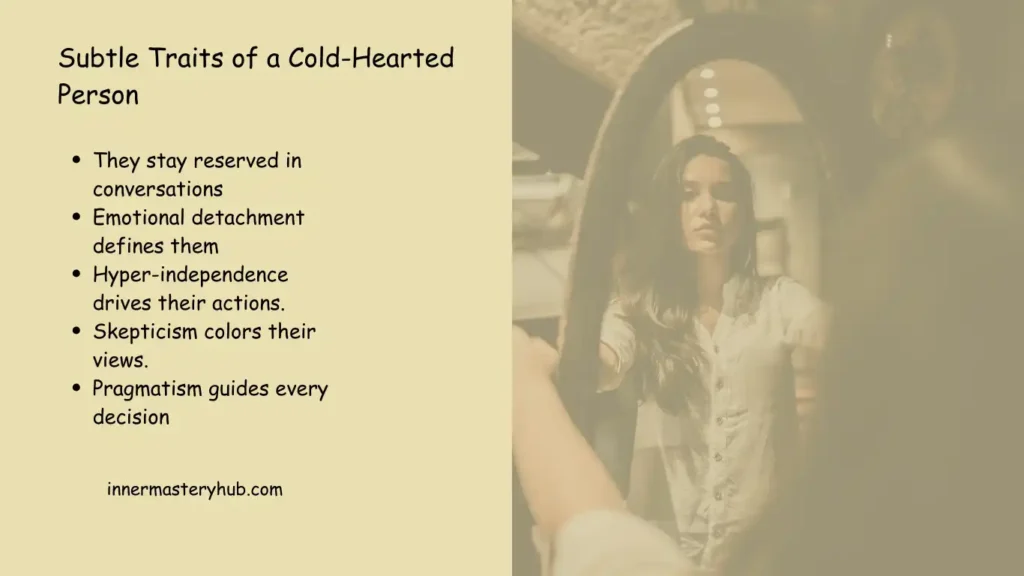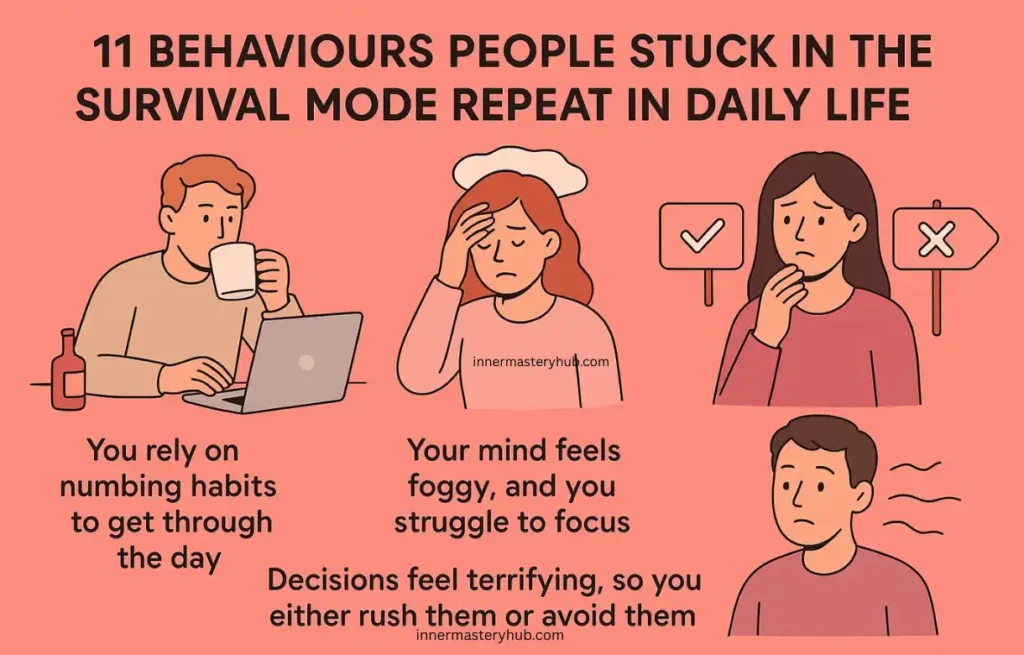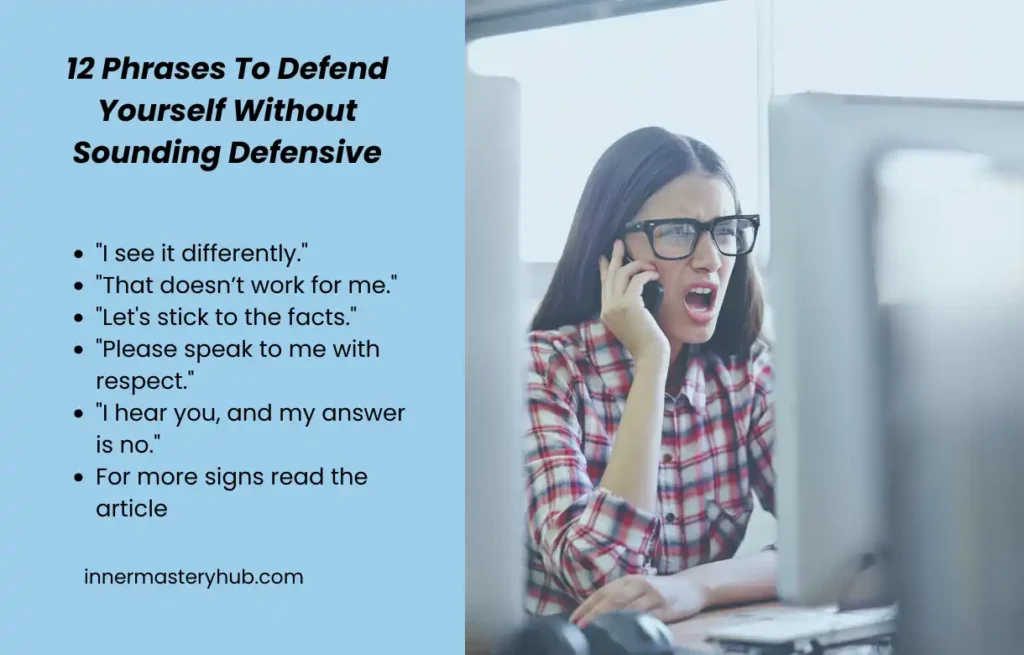Cracking Toxic Relationship Vocabulary Changing Confusion To Clarity

Relationships that are detrimental to your well-being can harm your mental health and drain your emotional energy. The toxic relationship terminologies are one of the most subtle yet strong things that make them extremely damaging. Words have a lot of power.
Toxic relationship vocabulary includes certain words that are often used to control, manipulate, and demean. Suppose you’re having trouble with or attempting to figure out the language of a toxic relationship. In that case, you need to learn this destructive language so you can better understand the emotional patterns that are developing.
Identifying Toxic Relationship Vocabulary
Have you ever sensed a problem in your relationship but been unable to pinpoint the cause? Words and phrases are frequently used to cover up poisonous behaviour.
Certain expressions may appear innocuous at first, but they can eventually lead to misunderstandings, emotional turmoil, and low self-esteem. Sometimes, toxic relationship terminologies are all about the words that are said, words that quietly undermine you or keep you stuck. They don’t necessarily involve yelling or overt hatred.
For example, someone is dismissing your feelings when they say things like “You’re just too sensitive” or “You’re overreacting” regularly. This is an illustration of toxic language that is used to minimise and manipulate your emotions. You can begin to understand the mechanisms at work by identifying these destructive shifts.
Why Toxic Relationship Vocabulary Hurts
You may believe it’s not a huge concern or that it’s only a few words. In reality, however, repeated exposure to negative speech may slowly sap your confidence and sense of self-worth. Toxic words have long-term consequences in addition to being harmful right away.
According to psychological research, using toxic relationship terminologies may increase feelings of hopelessness, anxiety, and sadness. Constant verbal abuse and invalidation can cause poor communication, emotional separation, and a lack of trust, according to research from the American Psychological Association. Harmful language is a significant contributor to these issues, which develop gradually rather than suddenly.
Imagine hearing these statements over and over again: “You’re lucky to have me,” or “You’ll never do better than me.” These words can have the effect of making you feel insignificant, helpless, and stuck in a relationship. These statements start to be used frequently in toxic relationships, which makes you doubt your own worth and value.
Identifying and Avoiding Toxic Relationship Terminologies

The first step to healing and establishing healthy boundaries is identifying the language used in toxic relationships. I can attest to the fact that awareness is empowering, having personally experienced it. You can begin to emotionally defend yourself and improve your communication in relationships after you recognize the damaging expressions.
Here’s a breakdown of the most common examples of toxic relationship terminologies and how they show up in everyday life.
1. “You’re Too Sensitive”
This phrase totally shows what gaslighting looks like. It really makes you think about how you feel. In a good relationship, your feelings need to be recognised and understood. But in a toxic relationship, this phrase is usually thrown around to cut off conversations and make you think that your feelings are over the top or not justified.
So, you let your partner know that what they did really bothered you. Instead of recognising how you feel, they say, “You’re overreacting.” You’re just being a bit too sensitive. How does it affect you? It makes you question your feelings and can lead to uncertainty about what really happened.
The next time you hear this, take a moment to consider whether your feelings are truly being understood. Good partners totally get your feelings, even if they don’t see eye to eye with you. If this continues, it may be time to take a step back and reassess the relationship.
2. “You Always…” or “You Never…”
In toxic relationship vocabulary, using absolutes like “always” or “never” is a typical manipulation technique. These statements overstate circumstances and depict a one-sided relationship in which one party is always at fault.
For instance, “You always ignore me.”
“You never listen to me.”
How does it affect you? These generalisations may give you the impression that you’re constantly making mistakes, even when that isn’t the case. It fosters animosity and hinders the ability to engage in fruitful dialogue.
Put these absolutes to the test. Specificity is essential for healthy communication. Rather than saying “You always do this,” try describing the particular instance that caused you to feel this way. For example, “When you didn’t reply to my message this morning, I felt ignored.” This keeps the discussion on the current topic and helps prevent needless conflict.
3. “You’re Lucky to Have Me”
This is a phrase that manipulates emotions. It’s an attempt to exert control over the other person by giving them the impression that, despite their mistreatment, they are not deserving of better treatment or should be thankful for the relationship.
“I’m the best you’ll ever get,” for instance. You’re fortunate to have me.
How does it affect you? This expression might lead to dependency and erode your self-confidence. You could feel bad about wanting more out of the relationship as a result.
See this for what it is: an effort to coerce you into continuing in an unhelpful relationship. Respect for one another, not superiority complexes, is the foundation of a healthy partnership.
4. “I Was Just Joking”
Toxic people often use humour as a means to disguise offensive remarks. “I was just joking” is a warning sign if someone regularly repeats it after making an offensive or demeaning statement. This expression is used to shift blame and escape accountability for actions that cause harm.
For instance. “Just kidding, you look fat in that dress!”
“You truly have no idea what to do, hehe.”
How does it affect you? These remarks have the potential to cause long-lasting emotional harm, even if they claim to be a joke. You can eventually come to feel that you’re not good enough or that people are constantly judging your appearance.
Define limits if someone makes fun of you. Inform them that offensive remarks, even if they are “just joking,” are not tolerated. Even in a lighthearted setting, hurting someone else’s feelings is not appropriate in a polite relationship.
5. “You’re Overreacting”
This expression is frequently used to minimise your feelings or worries. Your capacity to trust your feelings and yourself is undermined when you are led to believe that your response is excessive. It’s also a common strategy for assigning blame in abusive relationships.
For instance, when you tell your spouse that you’re upset about something they did, they say, “You’re just overreacting, it’s not a big deal.”
How does it affect you? It makes you doubt your emotional reactions and reduces your feelings.
Regardless of how others attempt to minimise your sentiments, it’s critical to acknowledge that they are real. Have faith in yourself and let people know that your worries are essential.
How to Protect Yourself from Toxic Relationship Language
Learning about toxic relationship terminologies is an integral part of keeping your mental and emotional health protected. You can begin to address toxic language and establish boundaries once you recognise what it is. As time goes on, you’ll be able to build relationships that respect what you have to say and how you feel.
If you and your partner often use toxic language, you need to think about whether the relationship is good for you. In a healthy relationship, both people feel appreciated and can communicate with each other reasonably. It’s time to take a step back and prioritise your health if the words being used are causing you harm.
Learn about the hurtful words that people use as toxic relationship terminologies, and don’t be afraid to stand up for your right to be treated with compassion and respect.
Frequently Asked Questions (FAQs) on Toxic Relationship Vocabulary
What does “gaslighting” mean in a toxic relationship vocabulary?
Gaslighting is when someone tricks another person into questioning their own thoughts or reality. For instance, a partner might say they didn’t say something hurtful, which makes you doubt your memory.
How can I identify “breadcrumbing” as toxic relationship vocabulary?
Breadcrumbing is when someone pays you little attention to keep you interested without meaning to. They might text or praise you once in a while, but they don’t get too involved.
What is “love bombing” as a toxic relationship language, and is it harmful?
To gain control, love bombing involves giving someone excessive amounts of love or gifts. It can be flattering at first, but it often leads to manipulation and mental dependence.
Can “stonewalling” affect relationship communication?
Stonewalling occurs when one partner stops talking to the other and refuses to engage. This strategy can hinder valuable conversations and damage emotional bonds.
What does “future faking” mean in a relationship?
Others who fake the future make promises about the future to gain others’ trust, but they don’t intend to keep them. It’s a way to control someone by keeping them emotionally involved.
Is “gaslighting” considered emotional abuse?
Gaslighting is a type of emotional abuse, yes. It hurts your self-esteem and can harm your mental health for a long time. It is imperative to recognise the importance of mental health.
What are the signs of “trauma dumping” in conversations?
Trauma dumping is talking about trauma that hasn’t been processed yet, without thinking about how the other person would feel. It can be too much for the listener and put a strain on relationships.
How does “manipulation” manifest in toxic relationship terminologies?
Manipulation occurs when you intentionally influence or affect someone for your own benefit, often by deceiving them or exploiting their emotions. This is a common occurrence in unhealthy relationships.
What is “pocketing” in dating terminology?
Pocketing means that your partner keeps the connection a secret and doesn’t introduce you to their friends or acquaintances. It shows that there isn’t enough devotion or openness.
Can “codependency” be harmful in relationships?
Yes, codependency is when one person depends too much on the other for emotional support, which makes the connection unhealthy and unbalanced.






